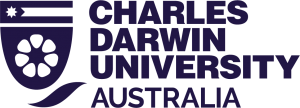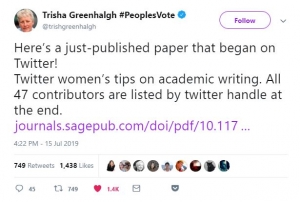Introduction
We hope you enjoyed the short break, and took the opportunity to recharge and maybe reflect on the activities you’ve completed over the last few weeks.
We all know what a reflection is when we look in a mirror, but you have you ever held a mirror up to your professional practice (whatever your role) to see what it tells you?
Why reflect?
This week we’ll look at why we engage in professional reflection, the benefits of reflecting on our professional practice, some tips to get started, and some tools that can help.
Watch the short video below about the concept of reflecting on and evaluating your own professional practice, then take a look at the activities under ‘Try’, where we encourage you to look back at your learning activities over the last few week, and forward to how you will learn from and use those experiences in the future. Finally, share your thoughts and comments with us under ‘Share’.
Before you launch into this week’s readings and activities, take a few minutes to listen carefully to the lyrics of Man in the Mirror. Are you ready to make a change?
Try
Write a short reflection on a recent event (maybe some professional development, a book you read, something that happened at work, or one of the activities you completed from Things 1-7). Describe the impact it had on you, and how it made you feel. Explain how that experience will affect your future decisions or actions. You could do this in your own blog or in the comments, or create your own location. (30 minutes)
Watch the six minute video below, and review your reflection using the four colour coding method mentioned at the five minute mark. Can you identify all four sections in your writing: Description, Interpretation, Evaluation and Plan? (15 minutes)
Learn more about Working Out Loud and bookmark International Working Out Loud Week, 12-18 November 2018 (Twitter #wolweek) (15 minutes)
More Detail
Most of us would have engaged in some form of informal reflection at some point. Something happened at work and at the end of the day or over the weekend, you go for a long walk to ‘clear your mind’; as you walk you toss things around and wonder whether what you said or did was the right thing, maybe in hindsight you might have done things differently. That’s the beginnings of reflection. However, within a week or two most of us will have forgotten that experience and life moves on. One of the benefits of formalising our reflective practice is that we can learn from our experiences and improve our understanding of situations or events.
Writing our thoughts in a structured format can help the learning process, and there are many models which provide guidance. This six minute video from the University of Hull explains the thought process and provides some tips on the process of reflective writing.
Technology Tools for Reflection
When first engaging with professional reflection, most people start with a simple journal, however, there are a range of digital tools that can be used to support our reflective writing. Depending on the content and context of your reflection, you may want to keep your writing private, or may feel you want to share with one or two trusted people, or the whole world.
Online tools and applications such as Google Docs, Evernote and Padlet provide opportunity to take notes, incorporate images and links, and make voice recordings. Each of these tools can be private or shared. For those in the health professions, the Ausmed app is designed to comply with CPD registration standards, stores copies of certificates, keeps track of CPD hours and includes a reflection tool with questions and prompts.
For those willing to share their reflections openly, blogs are useful, as these offer the opportunity to invite comment from readers, providing further prospects for ongoing reflection and discussion. Stepper (2016) describes Working Out Loud as a ‘personal practice that evolves over time‘, something that appeals to our desires for connection, for learning and purpose. The five elements of relationships, generosity, visible work, purposeful discovery and a growth mindset are explained further in his blog. Vora (2017) writes about International Working Out Loud Week (#wolweek) saying ‘it’s a great way to leverage wisdom of community to improve your own work …’ and includes a visual sketchnote of Stepper’s five elements.
Here an example of professional open reflection may be helpful: Campbell (2017) reflects on the process of achieving professional accreditation in her field of learning technology. Discussing Communication and working with others, she describes the differences between working with colleagues and volunteers, and reflects on how she adapted her communication techniques for different situations.
Sue is also working out loud to develop her CMALT Portfolio including descriptions of her role together with submission of supporting evidence and critical reflection. Note that as a work in progress, some of these reflections are incomplete, and notes include feedback from her mentor which are yet to be incorporated into the text.
Many who are confident in sharing their reflections use social networking sites such as Twitter. As a micro-blogging platform, Twitter captures micro-reflections as they happen and may offer a different perspective to narratives composed after the fact, and may lead to further discussion with peers encouraging deeper reflection. Many a blog post, and indeed some journal articles, originated as tweets.
Further Reading
For in depth reading with further models and resources, see the excellent Reflectors’ Toolkit developed by The University of Edinburgh and RMIT’s tutorial, Writing an academic reflection.
Share
- Share your reflection on something you learned from Things 1-7.
- Share a digital tool that you use for your professional reflection that others may find useful. Explain why that is your tool of choice.
Reminder: Keep track of your Professional Development using this form Record of evidence form
References
Academic Skills, The University of Melbourne. (2017, June 01). Reflective Writing [Video file]. Retrieved from https://www.youtube.com/watch?v=SntBj0FIApw&feature=youtu.be
Campbell, L. (2017, December 20). CMALT Reflection and Thanks [Blog post]. Retrieved from http://lornamcampbell.org/university-of-edinburgh/cmalt-reflection-and-thanks/
Campbell, L. (n.d.). Core Area 4: Communication and working with others. Retrieved from http://lornamcampbell.org/cmalt/core-area-4-communication-and-working-with-others/
Greenhalgh, T. (2019). Twitter Women’s Tips on Academic Writing: A Female Response to Gioia’s Rules of the Game. Journal of management Inquiry, 1-4. Retrieved from https://journals.sagepub.com/doi/pdf/10.1177/1056492619861796
MainSqueezeMusic. (2017, February 15). The Main Squeeze – “Man In The Mirror” (Michael Jackson) [Video file]. Retrieved from https://www.youtube.com/watch?v=ko5roiJR8EY&feature=youtu.be
RMIT University. (n.d.). Writing an academic reflection. Retrieved from https://emedia.rmit.edu.au/learninglab/content/writing-academic-reflection-0
SkillsTeamHullUni. (2014, March 3). Reflective Writing [Video file]. Retrieved from https://www.youtube.com/watchtime_continue=12&v=QoI67VeE3ds
Stepper, J. (2016, March 02). The 5 Elements of Working Out Loud (Revisited) [Blog post]. Retrieved from https://workingoutloud.com/blog/the-5-elements-of-working-out-loud-revisited
Vora, T. (2017, November 20). Working Out Loud: Relationships and Legacy [Blog post]. Retrieved from http://qaspire.com/2017/11/20/working-out-loud-relationships-and-legacy/
Photo by Andre Mouton on Unsplash
Thing 8 was written by Sue Tucker



